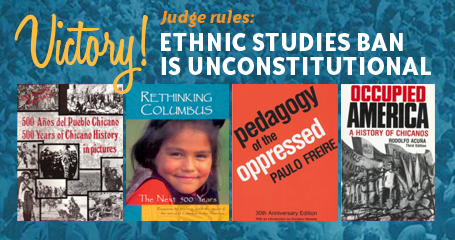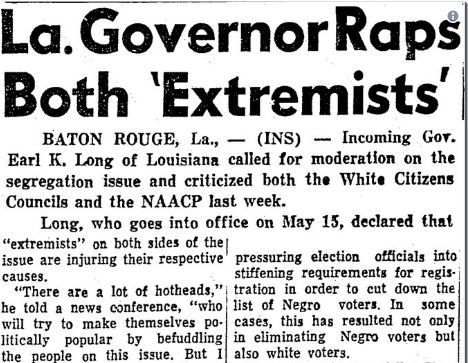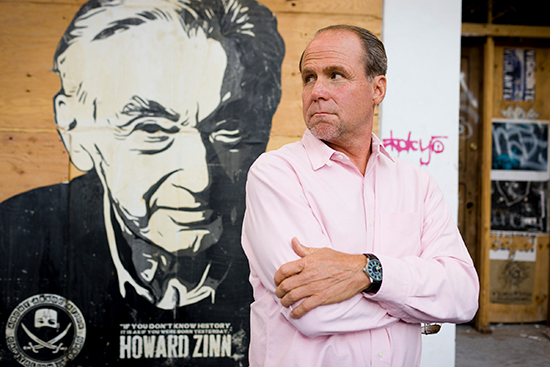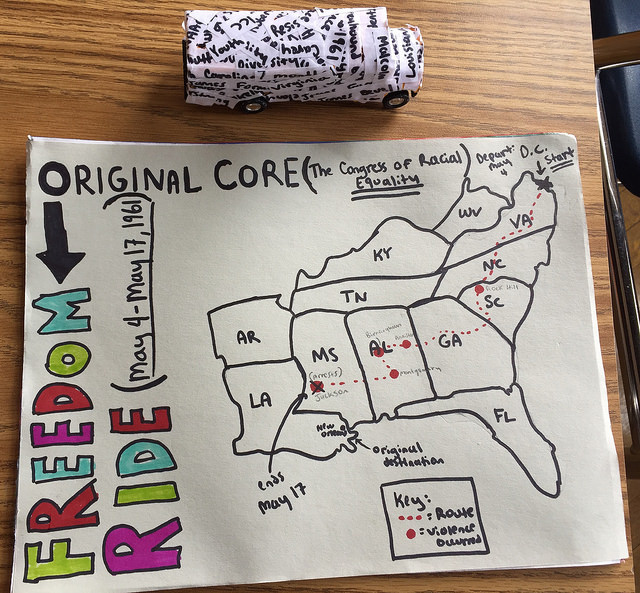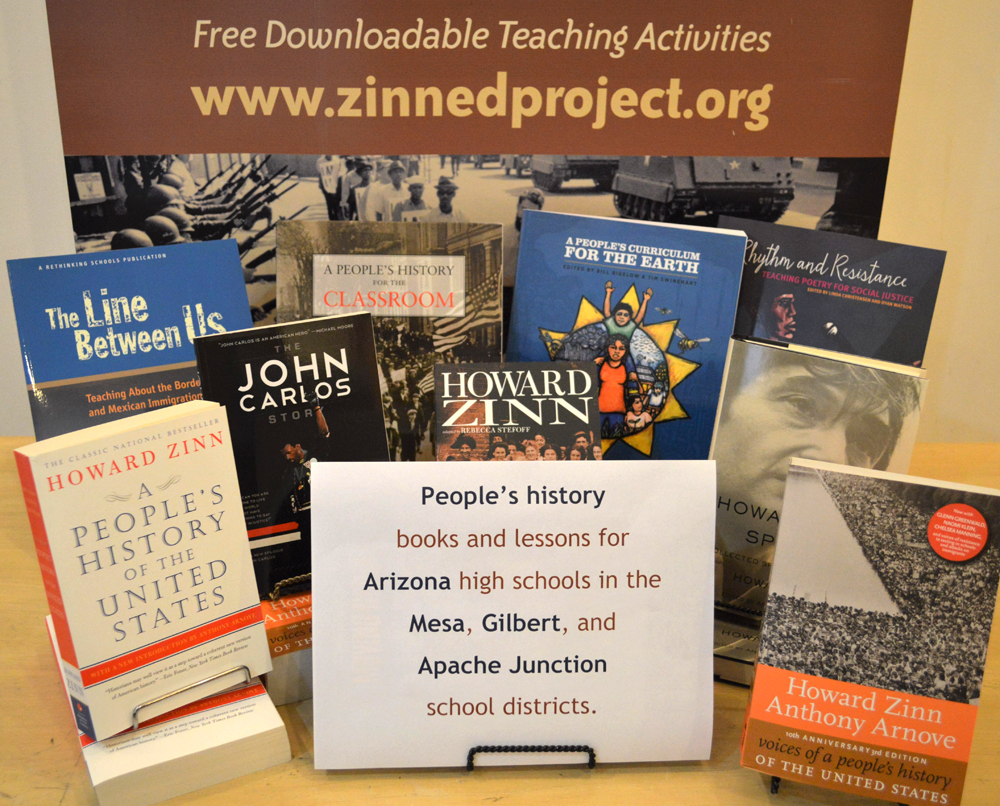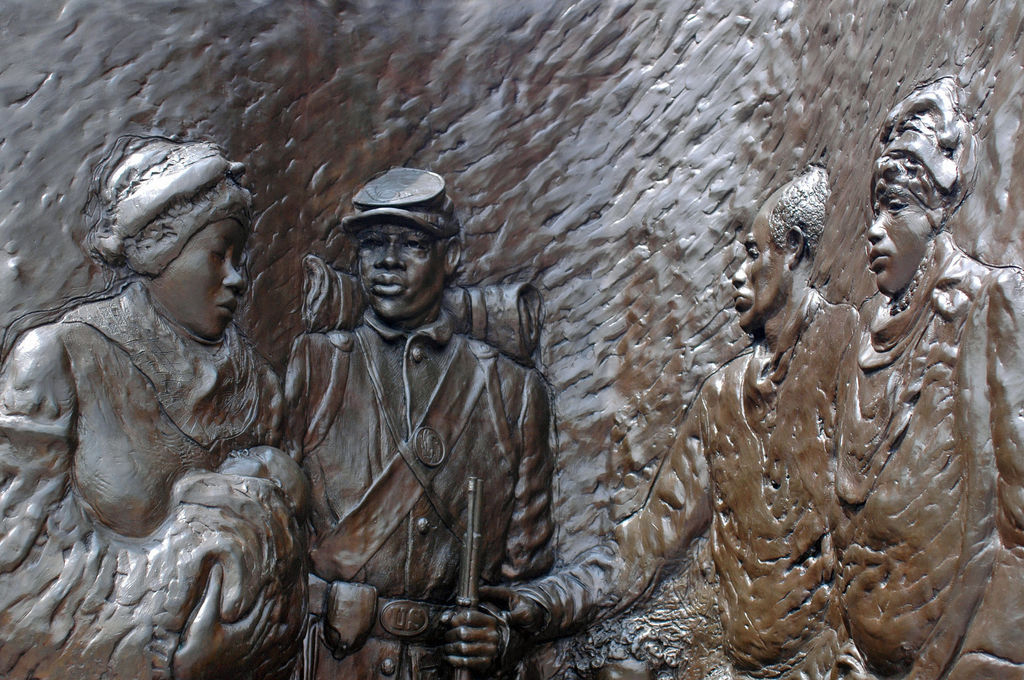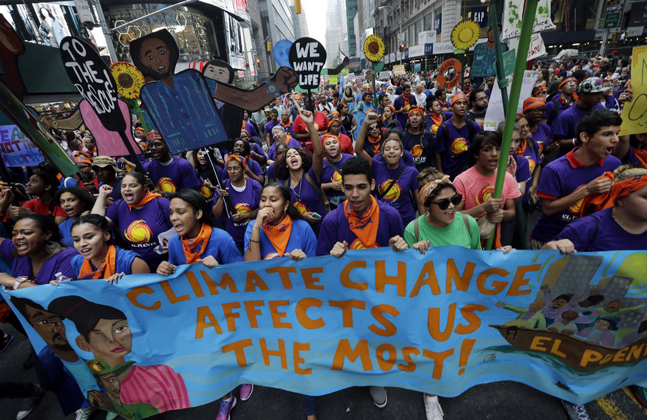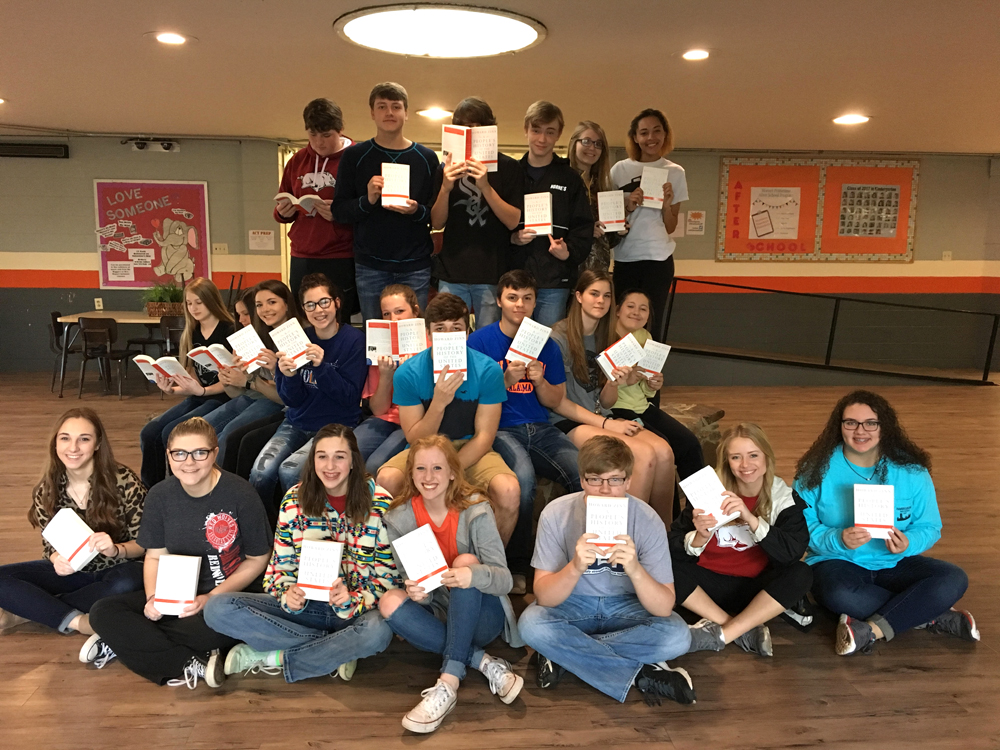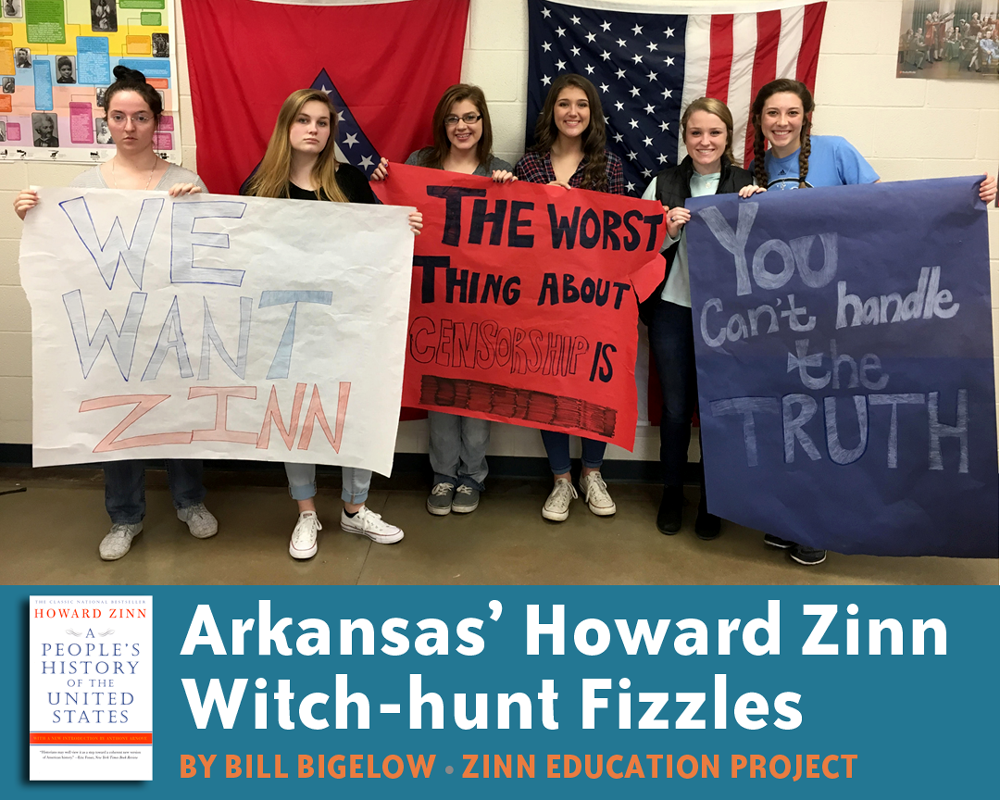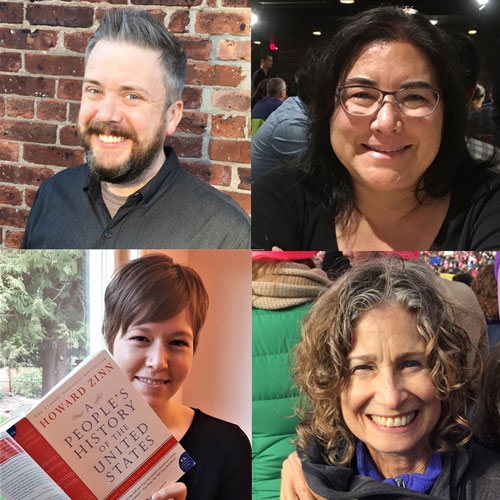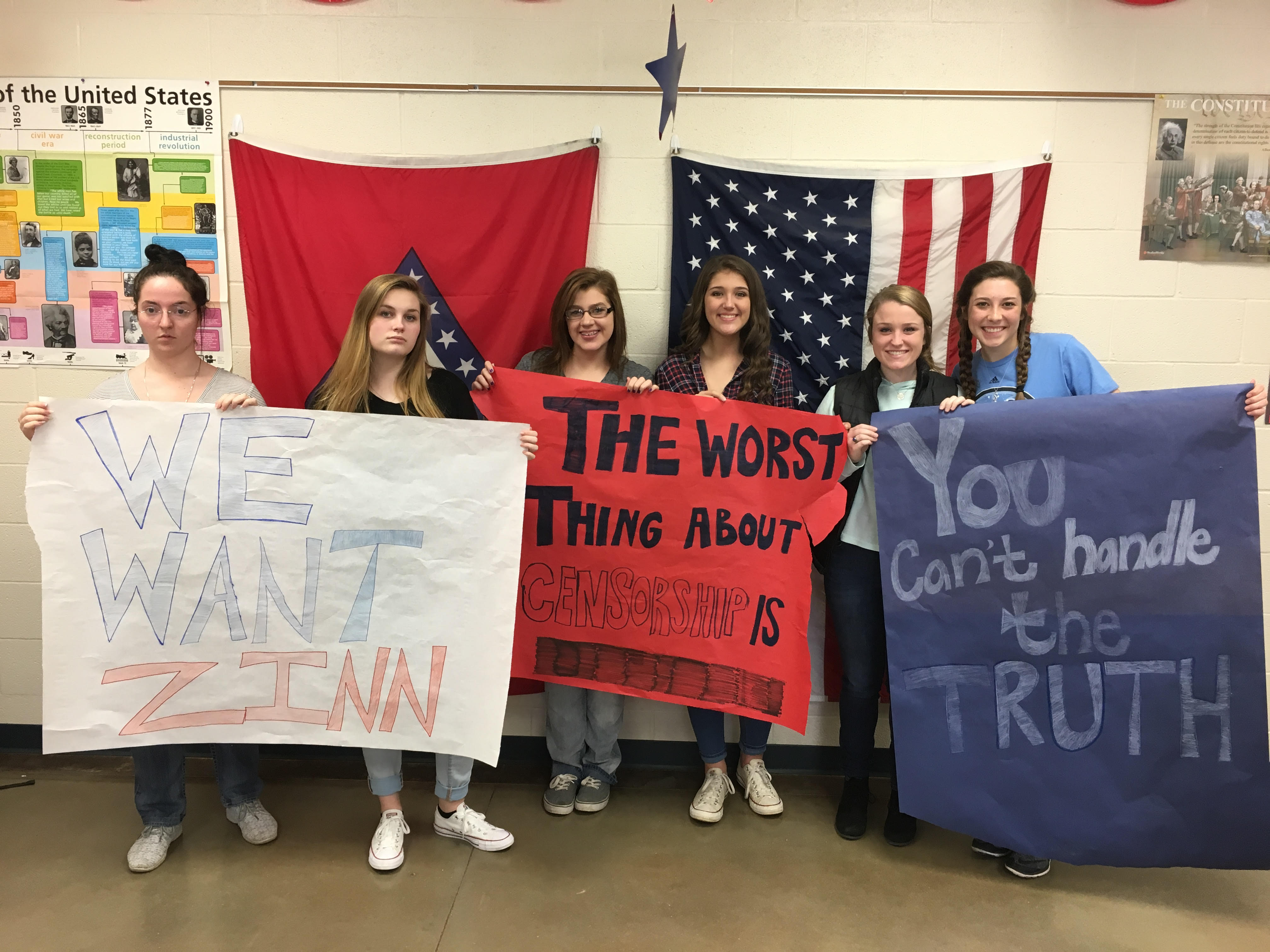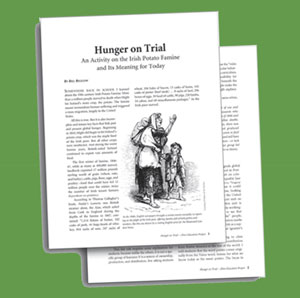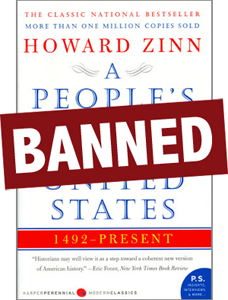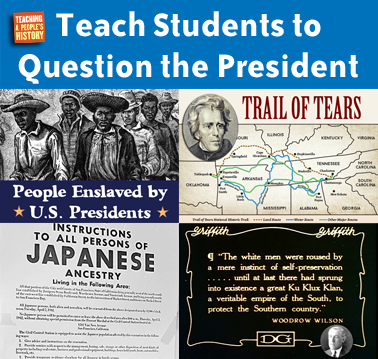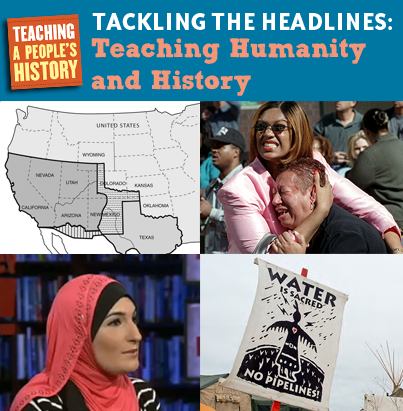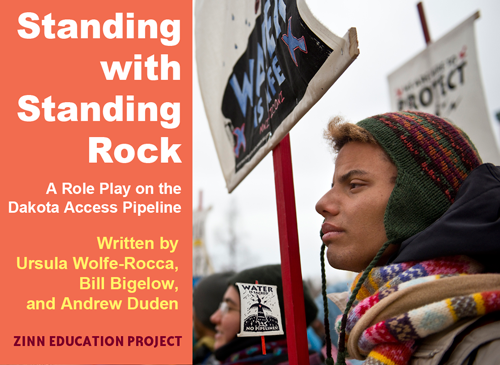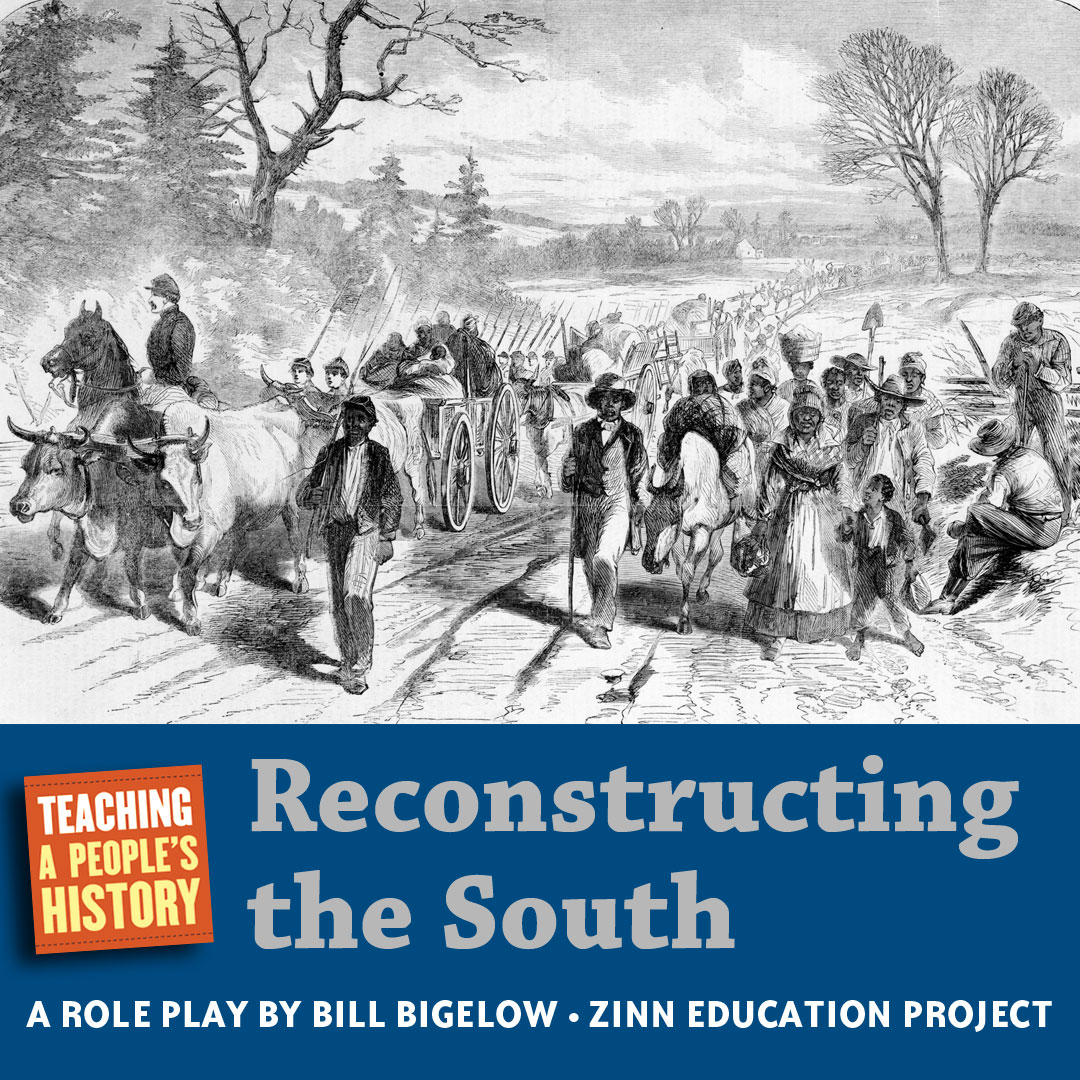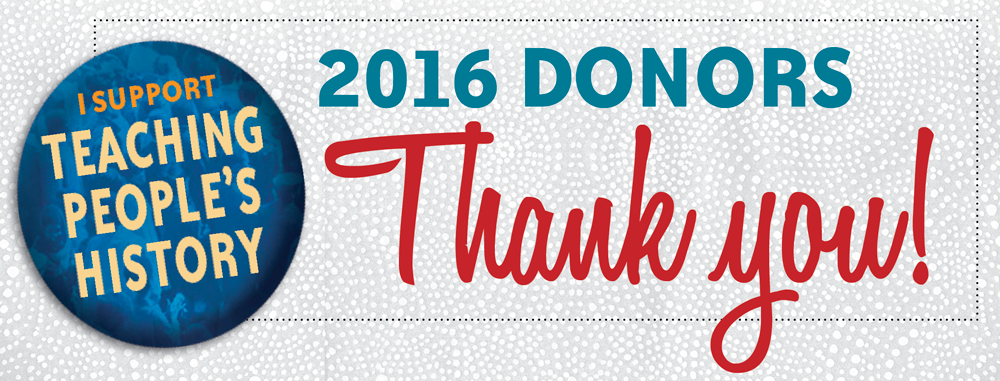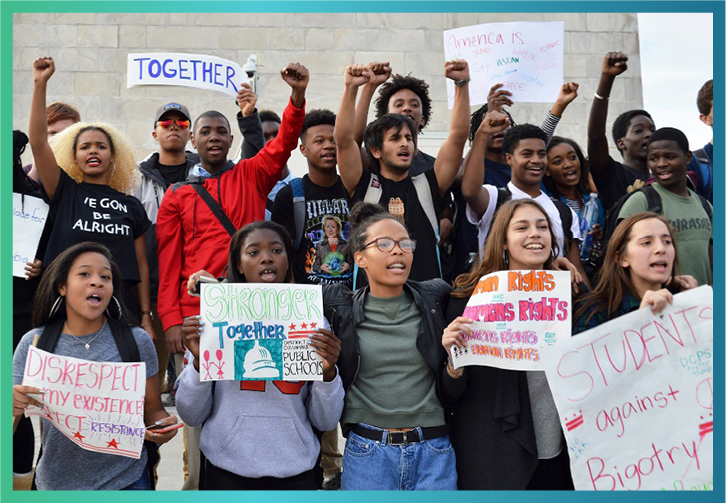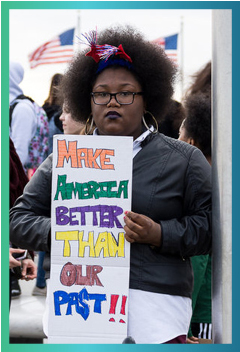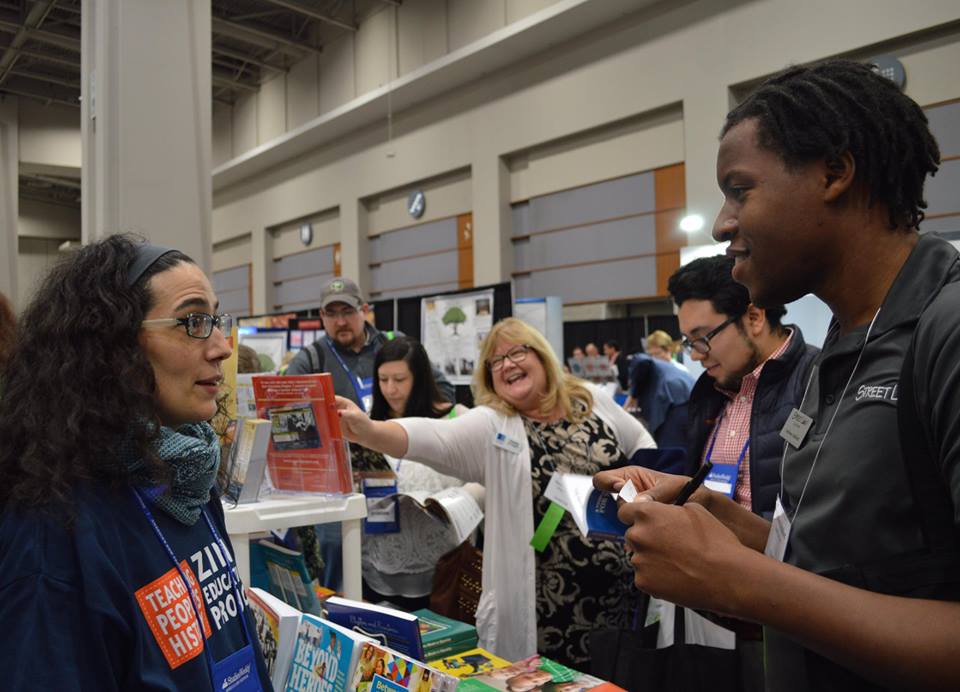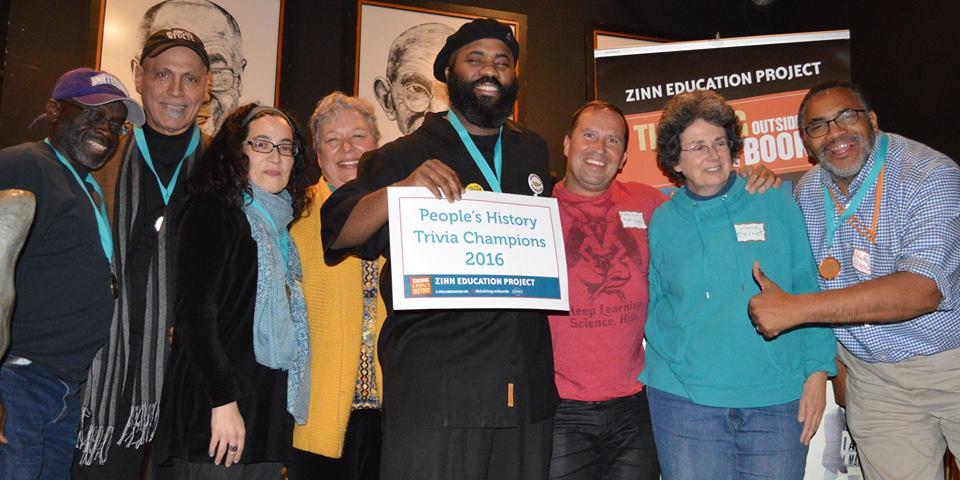In 2010, state lawmakers in Arizona passed legislation that banned courses that “promote resentment toward a race or class of people.” But the legislation was, in reality, specifically targeting a Mexican American Studies program that started decades ago after Black and Latino students filed a desegregation lawsuit.
Continue reading
In light of President Trump's comments about “both sides” being to blame for the violence during the white supremacist, Nazi rally in Charlottesville, VA, this past weekend, Kevin M. Kruse, Princeton history professor and author of White Flight: Atlanta and the Making of Modern Conservatism, shared examples in his Twitter feed about the use of false equivalencies in history.
Continue reading
The Summer 2017 issue of Bostonia, the Boston University alumni magazine, features a profile of Zinn Education Project co-founder William Holtzman and the recent book drive undertaken in response to a proposed Zinn book ban in Arkansas.
Continue reading
Imagine how we can transform the teaching of history by knitting together our ZEP network and provide them with even more extensive people's history resources. Resources that can help students question, but also can inspire and empower. To realize this vision, we'd like your help.
Continue reading
We saw the sculpture above on Twitter posted by high school teacher Hayley Breden in Denver, Colorado. It was one of more than a dozen inspiring and moving examples of her 11th and 12th graders’ end of the year assignments for an elective course on the Holocaust and other genocides.
Continue reading
Howard Johnson was angry when he read about racist taunts at a basketball game at Red Mountain High School in Mesa, Arizona, in early February. But he was not sure what he could do to help students learn to treat each other with respect until he read about the Howard Zinn book drive in Arkansas.
Continue reading
By Manisha Sinha
If nothing else, President Trump and the Republicans are making Civil War revisionism great again. In the spring of 2017, North Carolina GOP state Rep. Larry Pittman argued that Abraham Lincoln was “the same sort (of) tyrant” as Adolf Hitler, and was “personally responsible” for the deaths of hundreds of thousands of Americans in an “unnecessary and unconstitutional” war.
Continue reading
By Bob Peterson
While hundreds of thousands of concerned global citizens march for science and climate justice, a massive corporate-financed disinformation campaign on climate change is flooding our nation’s schools.
Continue reading
During the Howard Zinn book drive for Arkansas, we posted this note from Harrisburg, Arkansas high school teacher Morgan Garland: "I only have one copy of Howard Zinn's book and I make copies of each chapter for all of my students." Garland could not afford a class set. A Zinn Education Project Facebook fan, Yarrow from southern Oregon, saw the post and decided to take action.
Continue reading
By Bill Bigelow
Last week nearly 700 Arkansas teachers and school librarians received copies of books by Howard Zinn—thanks to a right wing state representative.
Well, not exactly. But here’s the story.
Continue reading
When we made a call for donations to send books to Arkansas teachers, we were touched by the comments donors gave with their contribution. We share these inspiring quotes with you.
Continue reading
Maybe you’ve heard: Legislation just proposed in Arkansas would ban books by or about Howard Zinn from all public schools in the state.
In solidarity with Arkansas educators and students, the Zinn Education Project is offering to send a book by Howard Zinn and A People’s History for the Classroom to any Arkansas teacher who requests them.
Continue reading
We are honored that our lesson, “Hunger on Trial: An Activity on the Irish Potato Famine and Its Meaning for Today” by Bill Bigelow, was used at the 2016 International Great Hunger Commemoration, an annual event sponsored by the Irish government, held in Philadelphia.
Continue reading
As reported in the Arkansas Times, pending legislation would prohibit any publicly supported schools in Arkansas "from including in its curriculum or course materials any books or other material authored by or concerning Howard Zinn."
Continue reading
On last Sunday’s CBS show “Face the Nation,” senior Trump policy adviser Stephen Miller defended Trump’s travel ban and said, “The powers of the president to protect our country are very substantial and will not be questioned.” We need to remind students that this country has been at its best when people have organized to question and challenge presidents.
Continue reading
With each passing day, it's becoming more apparent that Trump's agenda can only be enacted if people are ignorant of the issues underlying his supposed solutions. Having trouble finding and keeping work? Build that wall. Fearful of terrorist attacks? Ban Muslims. Want energy security and infrastructure development? Build that pipeline. The best antidote to Trump's xenophobia, racism, misogyny, and fossil-fuel soaked future is critical thinking.
Continue reading
The environmental activist organization Greenpeace, USA posted a short video using the words of Howard Zinn from You Can't Be Neutral on a Moving Train. This one-minute history lesson is a timely reminder of the power that resides outside the three branches of the U.S. government.
Continue reading
The Zinn Education Project has just posted "Standing with Standing Rock: A Role Play on the Dakota Access Pipeline" by Wolfe-Rocca, her colleague Andrew Duden, and Zinn Education Project co-director Bill Bigelow. The teaching activities help students grasp the issues at stake in the historic struggle of the Standing Rock Sioux for recognition of their treaty rights and for clean water for all.
Continue reading
In popular culture, the most memorable depiction of Reconstruction was D.W. Griffith's film, Birth of a Nation. Missing from this racist portrait of Reconstruction — and from too many textbooks — was the extraordinary experiment in grassroots multiracial democracy this period represented — land reform, public schools, expanded voting rights, greater equality.
Continue reading
The Zinn Education Project's ability to get people's history lessons into the hands of teachers is made possible by donations from individuals like you. We express our thanks to everyone who donated last year so that we can reach more classrooms in 2017.
Continue reading
Dear friends,
More than 65,000 teachers are helping students learn the truth, and teach outside the textbook. Their role has become all the more urgent.
These teachers are often the only chance students have to learn a different story—one that looks honestly at this country’s long history of exploitation, but one that also features the social movements that have made it more just and equal.
Continue reading
Dear friends,
Right wing media and politicians understand the importance of what children learn—or don't learn—about history in K-12 classrooms.
That's why they went after the Mexican American Studies program in Tucson, Arizona. That's why they attacked the climate change education resolution in Portland, Oregon. They feared the spread of these good examples.
Continue reading
The Zinn Education Project had a robust two days of discussions and community building during the 2016 National Council for the Social Studies annual conference.
Continue reading
On December 2, the Zinn Education Project hosted a packed house for the first-ever People’s History Trivia Night. Scheduled during the National Council for the Social Studies (NCSS) conference being held in Washington, D.C., this fundraising event brought together people’s history teachers and friends from around the country. It was a lively night of laughing and sharing as everyone enjoyed themselves while learning non-trivial people’s history.
Continue reading
Pitchfork magazine wrote about the 2016 elections in an article titled, "How to Get Involved in Politics Right Now: Take These Musicians’ Leads." They stressed the importance of teaching people's history, "...we must take seriously the ways in which public school resources represent our history. One easy way to do so it to look at the Zinn Education Project."
Continue reading

